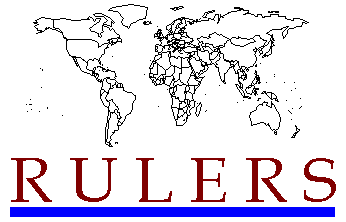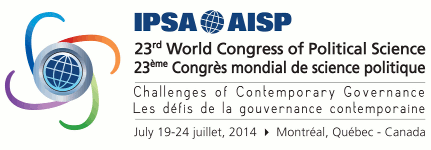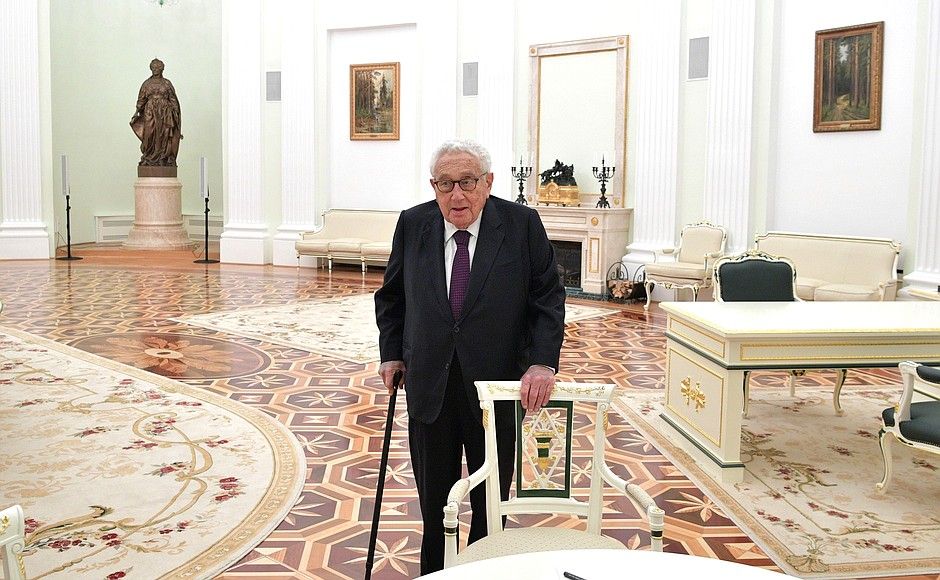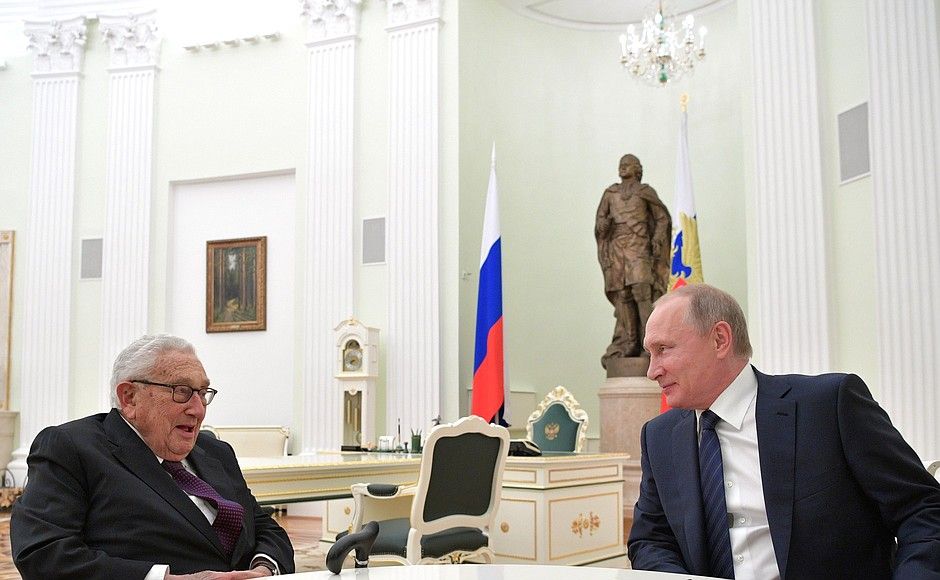| Niccolo Machiavelli
In his work The Prince, the Renaissance Italian political theorist Machiavelli put forward a political worldview which described practical methods for an absolute ruler to attain and maintain political power. His work is sometimes viewed as rejecting traditional views of morality for a ruler: "for Machiavelli, there is no moral basis on which to judge the difference between legitimate and illegitimate uses of power." It is from Machiavelli that the term Machiavellian is derived, refering to an amoral person who uses manipulative methods to attain power; however, many scholars have questioned this view of Machiavelli's theory, arguing that "Machiavelli did not invent 'Machiavellism' and may not even have been a 'Machiavellian' in the sense often ascribed to him." Instead, Machiavelli considered the stability of the state to be the most important goal, and argued that qualities traditionally considered morally desirable, such as generosity, were undesirable in a ruler and would lead to the loss of power.
Thomas Hobbes
In 1651, Thomas Hobbes published his most famous work, Leviathan, in which he proposed a model of early human development to justify the creation of polities, i.e. governed bodies. Hobbes described an ideal state of nature wherein every person had equal right to every resource in nature and was free to use any means to acquire those resources. He claimed that such an arrangement created a “war of all against all” (bellum omnium contra omnes). The book has been interpreted by scholars as posing two "stark alternatives"; total obedience to an absolute ruler, or "a state of nature, which closely resembles civil war...where all have reason to fear a violent death". Hobbes' view can therefore be interpreted as a defense of absolutism, arguing that human beings enter into a social contract for their protection and agree to obey the dictates of the sovereign; in Hobbes' worldview, "the sovereign is nothing more than the personal embodiment of orderly government." Hobbes himself argued "The final cause, end, or design of men (who naturally love liberty, and dominion over others) in the introduction of that restraint upon themselves, in which we see them live in Commonwealths, is the foresight of their own preservation, and of a more contented life thereby."
Hobbes also reported in Leviathan what he thought happened to the Roman Empire: "Whoever thinks about the origins of ecclesiastical domination, he sees at a glance that the papacy is nothing but the spirit of the dead Roman Empire that sets itself a crown and took place on the grave of that Empire, for that is how the papacy rose from the ruins of that pagan power." Chapter XLVII 'Of the Benefit that Proceedeth from Such Darkness, and to Whom it Accrueth':
"And first, to this error that the present Church, now militant on earth, is the kingdom of God (that is, the kingdom of glory, or the land of promise; not the kingdom of grace, which is but a promise of the land), are annexed these worldly benefits: first, that the pastors and teachers of the Church are entitled thereby, as God's public ministers, to a right of governing the Church; and consequently, because the Church and Commonwealth are the same persons, to be rectors and governors of the Commonwealth. By this title it is that the Pope prevailed with the subjects of all Christian princes to believe that to disobey him was to disobey Christ himself; and in all differences between him and other princes (charmed with the word power spiritual) to abandon their lawful sovereigns; which is in effect a universal monarchy over all Christendom. For though they were first invested in the right of being supreme teachers of Christian doctrine, by and under Christian emperors within the limits of the Roman Empire (as is acknowledged by themselves), by the title of Pontifex Maximus, who was an officer subject to the civil state; yet after the Empire was divided and dissolved, it was not hard to obtrude upon the people already subject to them, another title, namely, the right of St. Peter; not only to save entire their pretended power, but also to extend the same over the same Christian provinces, though no more united in the Empire of Rome. This benefit of a universal monarchy, considering the desire of men to bear rule, is a sufficient presumption that the Popes that pretended to it, and for a long time enjoyed it, were the authors of the doctrine by which it was obtained; namely, that the Church now on earth is the kingdom of Christ. For that granted, it must be understood that Christ hath some lieutenant amongst us by whom we are to be told what are his commandments."
John Locke
The English philosopher John Locke was "one of the greatest philosophers in Europe at the end of the seventeenth century". His political philosophy is contained primarily in his Two Treatises of Government. In the First Treatise of Government, Locke refutes the theory of the Divine Right of Kings as put forward by Robert Filmer; he "minutely examines key Biblical passages" and concludes that absolute monarchy is not supported by Christian theology. "Locke singles out Filmer's contention that men are not 'naturally free' as the key issue, for that is the 'ground'...on which Filmer erects his argument for the claim that all 'legitimate' government is 'absolute monarchy'."
In the Second Treatise of Government, Locke examines the concept of the social contract put forward by other theorists such as Thomas Hobbes, but reaches a different conclusion. Although he agreed with Hobbes on the concept of a state of nature before existing forms of government arose, he challenged Hobbes' view that the state of nature was equivalent to a state of war, instead arguing that there were certain natural rights belonging to all human beings, which continued even after a political authority was established. "The state of nature has a law of nature to govern it, which obliges everyone...being all equal and independent, no one ought to harm another in his life, liberty, health or possessions". According to one scholar, the basis of Locke's thought in the Second Treatise is that "contract or consent is the ground of government and fixes its limits...behind [this] doctrine lies the idea of the independence of the individual person." In other words, Locke's view was different from Hobbes' in that he interpreted the idea of the "state of nature" differently, and he argued that people's natural rights were not necessarily eliminated by their consent to be governed by a political authority.
Jean-Jacques Rousseau
The 18th century French philosopher Jean-Jacques Rousseau, in his book The Social Contract, put forward a system of political thought which was closely related to those of Hobbes and Locke, but different in important respects. In the opening sentence of the book, Rousseau argued that "...man was born free, but he is everywhere in chains" He defined political authority and legitimacy as stemming from the "general will", or volonté generale; for Rousseau, "true Sovereignty is directed always at the public good". This concept of the general will implicitly "allows for individual diversity and freedom...[but] also encourages the well-being of the whole, and therefore can conflict with the particular interests of individuals." As such, Rousseau also argues that the people may need a "lawgiver" to draw up a constitution and system of laws, because the general will, "while always morally sound, is sometimes mistaken".
Rousseau's thought has been seen by some scholars as contradictory and inconsistent, and as not addressing the fundamental contradiction between individual freedom and subordination to the needs of society, "the tension that seems to exist between liberalism and communitarianism". As one Catholic scholar argues, "that it [The Social Contract] contains serious contradictions is undeniable...its fundamental principles--the origin of society, absolute freedom and absolute equality of all--are false and unnatural." The Catholic Encyclopedia further argues that Rousseau's concept of the general will would inevitably lead to "the suppression of personality, the reign of force and caprice, the tyranny of the multitude, the despotism of the crowd", i.e. the subordination of the individual to society as a whole.
John Stuart Mill
In the 19th century, John Stuart Mill pioneered the liberal conception of politics. He saw democracy as the major political development of his era and, in his book On Liberty, advocated stronger protection for individual rights against government and the rule of the majority. He argued that liberty was the most important right of human beings, and that the only just cause for interfering with the liberty of another person was self-protection. One commentator refers to On Liberty as "the strongest and most eloquent defense of liberalism that we have." Mill also emphasised the importance of freedom of speech, claiming that "we can never be sure that the opinion we are attempting to stifle is a false opinion, and if we were sure, stifling it would be an evil still."
Karl Marx
Karl Marx, most reviled revolutionary and most admired thinker, was among the most influential political philosophers of history. His theories, collectively termed Marxism, were critical of capitalism and argued that in the due course of history, there would be an "inevitable breakdown of capitalism for economic reasons, to be replaced by communism." He defined history in terms of the class struggle between the bourgeoisie, or property-owning classes, and the proletariat, or workers, a struggle intensified by industrialisation: "The development of Modern Industry, therefore, cuts from under its feet the very foundation on which the bourgeoisie produces and appropriates products. What the bourgeoisie therefore produces, above all, are its own grave-diggers. Its fall and the victory of the proletariat are equally inevitable.
Marx was married with Jenny Westphalen. Her brother became the reactionairy Prussian minister of Interior, who brought actions against revolutionaries and other oposers. After the failure of the 1848 revolution and the ban on the liberal 'Rheinische Zeitung', where Marx was editor-in-chief, a chronicle of flee and exile started which drove the family through Europe, harassed by diseases and a lack of money. Friedrich Engels played a solid role in the life and work of Karl Marx and kept the familiy financially up as much as possible.
Many subsequent political movements have based themselves on Marx's thought, offering widely differing interpretations of communism; these include Marxism-Leninism, Maoism and libertarian Marxism. Possibly the most influential interpreter of Marxist theory was Lenin, founder of the Soviet Union, who created a revolutionary theory founded on Marxist thinking. However, libertarian Marxist thinkers have challenged Lenin's interpretation of Marx; Cornelius Castoriadis, for instance, described the Soviet Union's system as a form of "bureaucratic capitalism" rather than true communism.
Other philosophers
There are numerous other notable philosophers and political theorists who have influenced the development of contemporary political thought, among them Thomas Jefferson (whose political theories were central to the foundations of the American system of government), Edmund Burke, Baruch Spinoza, the Baron de Montesquieu, Thomas Paine, Jeremy Bentham and David Hume.
Political power
Power is a concept that is central to politics. Max Weber defined power as the ability to impose one's will "even in the face of opposition from others", while Hannah Arendt states that "political power corresponds to the human ability not just to act but to act in concert." Many different views of political power have been proposed.
The multiple notions of political power that are put forth range from conventional views that simply revolve around the actions of politicians to those who view political power as an insidious form of institutionalized social control - most notably "anarchists" and "radical capitalists". The main views of political power revolve around normative, post-modern, and pragmatic perspectives.
Normative faces of power debate
The faces of power debate has coalesced into a viable conception of three dimensions of power including decision-making, agenda-setting, and preference-shaping. The decision-making dimension was first put forth by Robert Dahl, who advocated the notion that political power is based in the formal political arena and is measured through voting patterns and the decisions made by politicians. This view has been criticised by many as simplistic, notably by the sociologist G. William Domhoff, who argues that political and economic power is monopolised by the "elite classes".
A second dimension to the notion of political power was added by academics Peter Bachrach and Morton Baratz involving "agenda-setting". Bachrach and Baratz viewed power as involving both the formal political arena and behind the scenes agenda-setting by elite groups who could be either politicians and/or others (such as industrialists, campaign contributors, special interest groups and so on), often with a hidden agenda that most of the public may not be aware of. The third dimension of power was added by British academic Steven Lukes who felt that even with this second dimension, some other traits of political power needed to be addressed through the concept of 'preference-shaping'. Lukes developed the concept of the "Three faces of power" - decision-making power, non-decision-making power, and ideological power.
This third dimension is inspired by many Neo-Gramscian views such as cultural hegemony and deals with how civil society and the general public have their preferences shaped for them by those in power through the use of propaganda or the media. Ultimately, this third dimension holds that the general public may not be aware of what decisions are actually in their interest due to the invisible power of elites who work to distort their perceptions. Critics of this view claim that such notions are themselves elitist, which Lukes then clearly admits as one problem of this view and yet clarifies that as long as those who make claims that preferences are being shaped explain their own interests etc., there is room for more transparency.
Postmodern challenge of normative views of power
Some within the postmodern and post-structuralist field claim that power is something that is not in the hands of the few and is rather dispersed throughout society in various ways. As one academic writes, "...postmodernists have argued that due to a variety of inherent biases in the standards by which ”valid“ knowledge has been evaluated...modernist science has tended to reproduce ideological justifications for the perpetuation of long-standing forms of inequality. Thus, it is the strategy of postmodern science...to identify and, thereby, attack the ”deceiving“ power of universalizing scientific epistemologies."
Pragmatic view of power
Samuel Gompers' maxim, often paraphrased as,"Reward your friends and punish your enemies," hints at two of the five types of power recognized by social psychologists: incentive power (the power to reward) and coercive power (the power to punish). Arguably the other three grow out of these two.
Legitimate power, the power of the policeman or the referee, is the power given to an individual by a recognized authority to enforce standards of behavior. Legitimate power is similar to coercive power in that unacceptable behavior is punished by fine or penalty.
Referent power is bestowed upon individuals by virtue of accomplishment or attitude. Fulfillment of the desire to feel similar to a celebrity or a hero is the reward for obedience.
Expert power springs from education or experience. Following the lead of an experienced coach is often rewarded with success. Expert power is conditional to the circumstances. A brain surgeon is no help when your pipes are leaking.
Political spectrums
Left-Right politics
Most political analysts and politicians divide politics into left wing and right wing politics, often also using the idea of center politics as a middle path of policy between the right and left. This classification is comparatively recent (it was not used by Aristotle or Hobbes, for instance), and dates from the French Revolution era, when those members of the National Assembly who opposed the monarchy sat on the left, while those who supported it sat on the right.
The meaning of left-wing and right-wing varies considerably between different countries and at different times, but broadly speaking, it can be said that the right wing is often linked to moral and social conservatism, law and order, and religion, while the left wing is often linked with redistribution of wealth and resources towards the poorer or less successful sections of society (which are generally perceived by the left as unfairly disadvantaged), and with secularism. The right wing is more often linked to the idea of social equity, and the left wing to the idea of social equality.
According to Norberto Bobbio, one of the major exponents of this distinction, the Left believes in attempting to eradicate social inequality, while the Right regards most social inequality as the result of ineradicable natural inequalities, and sees attempts to enforce social equality as utopian or authoritarian.
Some ideologies, notably Christian Democracy, claim to combine left and right wing politics; according to Geoffrey K. Roberts and Patricia Hogwood, "In terms of ideology, Christian Democracy has incorporated many of the views held by liberals, conservatives and socialists within a wider framework of moral and Christian principles." Movements which claim or formerly claimed to be above the left-right divide include Gaullism in France, Peronism in Argnetina, and National Action Politics in Mexico.
Authoritarian-Libertarian
While left and right refer to different methods of developing an economically stable and just society, authoritarianism and libertarianism refer to the amount of individual freedom each person possesses in that society relative to the state. One author describes authoritarian political systems as those where "individual rights and goals are subjugated to group goals, expectations and conformities", while a libertarian political system is one in which individual rights and civil liberties are paramount. More extreme than libertarians are anarchists, who argue for the total abolition of government, while the most extreme authoritarians are totalitarians who support state control over all aspects of society.
Authoritarianism and libertarianism are separate concepts from the left-right political axis. For instance, classical liberalism and contemporary American libertarianism are socially liberal, but reject extensive governmental intervention in the economy and welfare. According to the libertarian Institute for Humane Studies, "the libertarian, or 'classical liberal,' perspective is that individual well-being, prosperity, and social harmony are fostered by 'as much liberty as possible' and 'as little government as necessary.' "Likewise, anarchists may be left-wing (anarcho-syndicalism) or right-wing (anarcho-capitalism).
Authority and legitimacy
Authority, in a political sense, is different from political power in that it implies legitimacy and acceptance; it implies that the person or state exercising power has a perceived right to do so. Legitimacy is an attribute of government gained through the acquisition and application of power in accordance with recognized or accepted standards or principles.
Max Weber identified three sources of legitimacy for authority, known as the tripartite classification of authority. He proposed three reasons why people follow the orders of those who give them:
Traditional authority
Traditional authorities receive loyalty because they continue and support the preservation of existing values, the status quo. Weber called this "the authority of the eternal yesterday". Patriarchal (and more rarely matriarchal) societies gave rise to hereditary monarchies where authority was given to descendants of previous leaders. Followers submit to this authority because "we've always done it that way." Examples of traditional authoritarians include absolute monarchs.
Charismatic authority
Charismatic authority grows out of the personal charm or the strength of an individual personality (see cult of personality for the most extreme version). Charismatic regimes are often short-lived, seldom outliving the charismatic figure that leads them. For a charismatic regime to survive the rule of the individual personality, it must transform its legitimacy into a different form of authority. An example of this would be Augustus' efforts to create the position of the Roman principate and establish a ruling dynasty, which could be viewed as a shift to a traditional form of authority, in the form of the principate that would exist in Rome for more than 400 years after his death.
Legal-rational authority
Legal-rational authorities receive their ability to compel behavior by virtue of the office that they hold. It is the authority that demands obedience to the office rather than the office holder; Weber identified "rationally-created rules" as the central feature of this form of authority. Modern democracies are examples of legal-rational regimes. People also abide by legal-rational authority because it makes sense to do so for their own good, as well as for the greater good of society.
These three forms of authority are said to appear in a "hierarchical development order"; states progress from charismatic authority, to traditional authority, and finally reach the state of rational-legal authority which is characteristic of a modern liberal democracy. |






